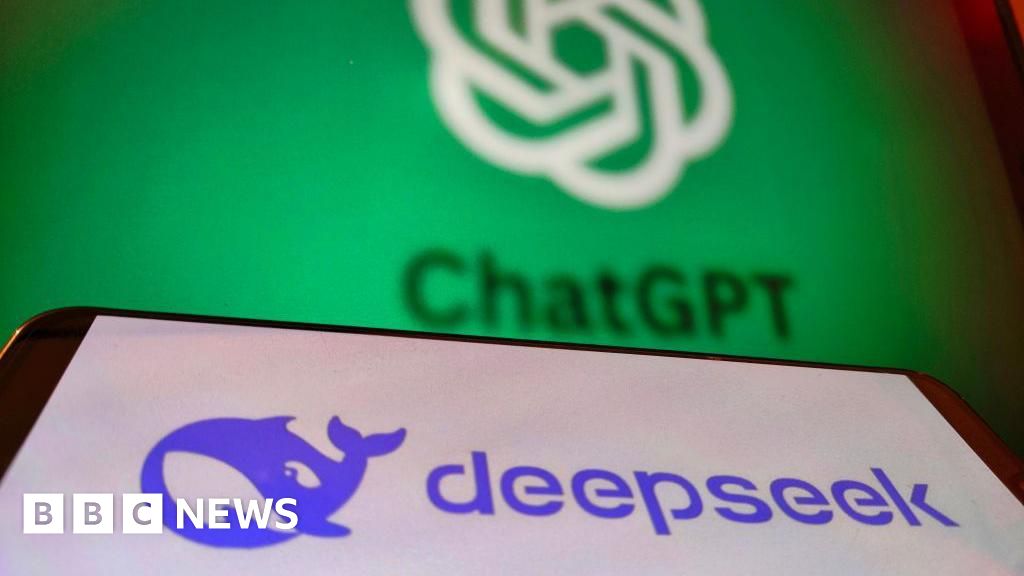 |
|
The emergence of DeepSeek, a Chinese AI application, has sent shockwaves through the global technology industry. Its rapid ascent to the top of app download charts and its purportedly low development cost have prompted comparisons with established US players like ChatGPT and Google's Gemini. This article explores a comparative analysis of DeepSeek and ChatGPT across various functionalities, revealing surprising similarities and highlighting key distinctions. The article's focus is primarily on functional comparison, examining performance in writing assistance, coding assistance, brainstorming, and research tasks, rather than a deep dive into the underlying algorithms or economic models.
In writing assistance, both DeepSeek and ChatGPT demonstrate capabilities beyond simple text generation. When tasked with summarizing the greatest Scottish footballers and drafting a blog post about them, both AI models delivered comprehensive results. DeepSeek provided a concise top ten list with key details about each player, including position, club, and accomplishments. While including two non-Scottish players, it thoughtfully explained their inclusion in the context of Scottish football history. ChatGPT, on the other hand, delivered a more detailed blog post, elaborating on the careers of the selected players and offering insightful commentary. The results demonstrate comparable capabilities in information gathering, summarization, and creative writing, although differing in style and level of detail.
The comparison extends to coding assistance, a crucial area where AI models are increasingly relied upon by developers. The article highlights anecdotal evidence from AI researchers who tested DeepSeek's capabilities on complex coding problems. One researcher reported DeepSeek's success in solving a particularly challenging problem that even the established ChatGPT o1 model failed to resolve. Furthermore, the integration of DeepSeek with other AI models, such as Anthropic's Claude Sonnet, demonstrates a synergistic potential in enhancing coding workflows. This suggests that DeepSeek’s functionality can complement and enhance existing AI tools, potentially offering a more cost-effective and efficient approach to coding.
The capacity for brainstorming and idea generation was also assessed. ChatGPT provided multiple distinct ideas for a children's story about a boy living on the moon, each offering a unique narrative premise. DeepSeek, conversely, produced a single, fully written story, albeit less polished and with a straightforward plot structure. This difference in approach illustrates different strengths: ChatGPT excels in generating a breadth of ideas, while DeepSeek demonstrates prowess in rapidly producing complete narratives. The choice between these approaches would depend on the specific needs of the user; a writer seeking inspiration might prefer ChatGPT's multiple ideas, while a writer seeking a quick initial draft might find DeepSeek more useful. This highlights the importance of understanding the strengths and weaknesses of each tool in selecting the appropriate AI assistant for the task.
Finally, the article examines the performance of both AI models in handling complex historical topics, specifically the events leading to World War I. Both ChatGPT and DeepSeek provided informative summaries covering the key events and contributing factors. ChatGPT offered a more detailed account, while DeepSeek provided a concise overview, highlighting the main points effectively. The inclusion of Google's Gemini further supports the finding that multiple AI models demonstrate similar capabilities in handling complex information processing and knowledge retrieval. This suggests that both DeepSeek and ChatGPT provide reliable and usable resources for research and learning, albeit with different levels of detail and approaches to information presentation.
In conclusion, the article provides a comparative overview of DeepSeek and ChatGPT, highlighting their respective strengths and weaknesses across various applications. While DeepSeek’s lower cost and rapid delivery of complete drafts represent key advantages, ChatGPT’s greater detail, multiple idea generation, and established reputation remain significant factors. The ultimate choice between these AI models hinges on the specific task and the user’s priorities, indicating that a multifaceted approach, incorporating different AI tools for their respective strengths, might prove most effective in diverse contexts. Further research and more comprehensive benchmarking are needed to fully assess the long-term impact of DeepSeek and its potential to reshape the competitive landscape of the AI market.
